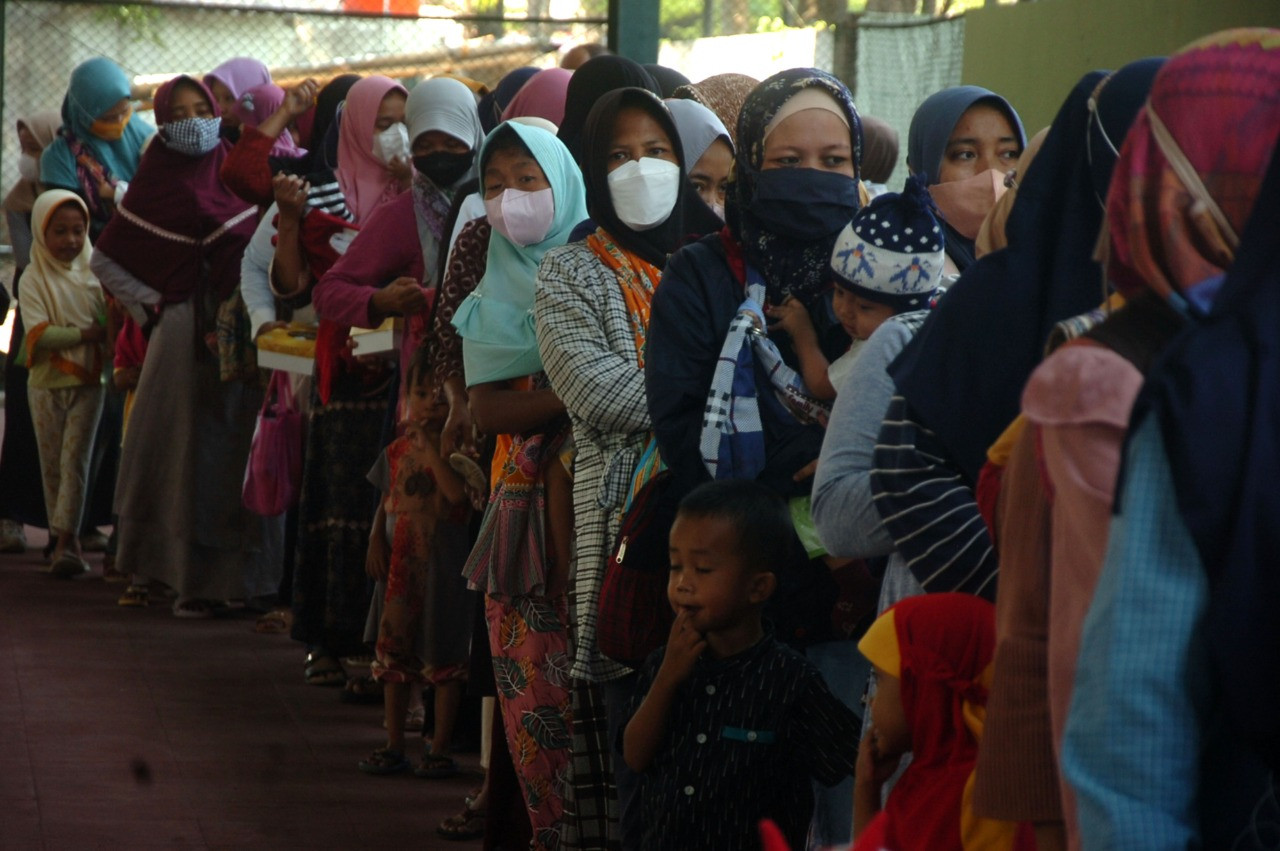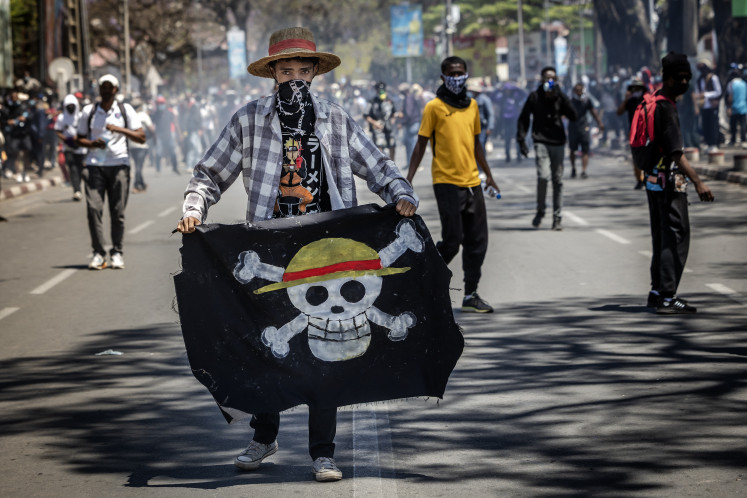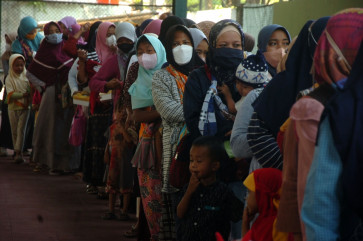Popular Reads
Top Results
Can't find what you're looking for?
View all search resultsPopular Reads
Top Results
Can't find what you're looking for?
View all search resultsWe need solid data to combat extreme poverty
Good data governmance and good data remain the challenges to achieving the government's goal of eradicating extreme poverty by 2024.
Change text size
Gift Premium Articles
to Anyone
 Food for all: Low-income people line up for healthy food packages jointly provided by the local administration and the Indonesian Military (TNI) in the Central Java regency of Tegal on July 26, 2022. The COVID-19 pandemic has plunged millions of people in the country into poverty. (Antara/Oky Lukmansyah)
Food for all: Low-income people line up for healthy food packages jointly provided by the local administration and the Indonesian Military (TNI) in the Central Java regency of Tegal on July 26, 2022. The COVID-19 pandemic has plunged millions of people in the country into poverty. (Antara/Oky Lukmansyah)
T
he administration of President Joko Widodo has an ambitious target to eradicate by 2024 extreme poverty, or people living below the international poverty line of US$1.90 purchasing power parity (PPP) per capita per day, through a multi-intervention program combining social safety nets and empowering the poor.
The latest World Bank data show that people living in extreme poverty accounted for 2.2 percent of the Indonesian population in 2021. This means that the poverty reduction rate must be at least 0.73 percentage point per year in the coming years to achieve the goal.
Combating extreme poverty is very challenging, not only because the government has to deal with the poorest of the poor, but also the availability of good data.
Thanks to the twice-yearly National Socioeconomic Survey (SUSENAS) of Statistics Indonesia (BPS), the country has no issue with its data for monitoring and evaluating the development of extreme poverty.
The main issue is the availability of good microdata (name, address) for the various intervention programs targeting the poor.
BPS collected and provided this data the first time in 2005 through the Pendataan Sosial Ekonomi (PSE), or socioeconomic data collection. It was the first poverty census conducted in the country.
Considering the dynamic nature of poverty, BPS has updated the database, called the Integrated Social Welfare Data (DTKS), three times in 2008, 2011 and 2015. At the same time, the data collected has evolved to cover 40 percent of the total population with the lowest economic status.


















